Our dedicated faculty teach and conduct research at the forefront of innovation and across disciplines, supporting the university’s vision of academic excellence.
Senior Faculty
-
 Scott Wildman BSc, PHD, FHEA Executive Principal & Dean of Northeastern University LondonRead full bio
Scott Wildman BSc, PHD, FHEA Executive Principal & Dean of Northeastern University LondonRead full bio -
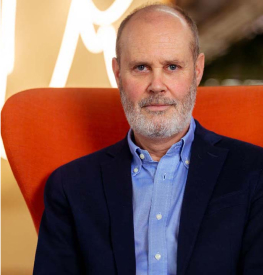 Michael Peplar Special Advisor to the Dean, Director of the Doctoral School, and Associate Professor in HistoryRead full bio
Michael Peplar Special Advisor to the Dean, Director of the Doctoral School, and Associate Professor in HistoryRead full bio -
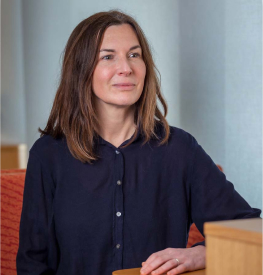 Naomi Goulder BA, MA, PHD Deputy Dean; Associate Dean for Innovation and Enterprise; and Associate Professor in PhilosophyRead full bio
Naomi Goulder BA, MA, PHD Deputy Dean; Associate Dean for Innovation and Enterprise; and Associate Professor in PhilosophyRead full bio -
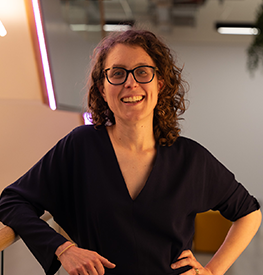 Chiara Alfano Associate Dean of Teaching and LearningRead full bio
Chiara Alfano Associate Dean of Teaching and LearningRead full bio -
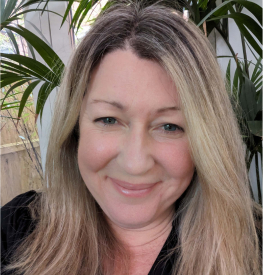 Carolyn Barker Associate Dean of Research and Knowledge ExchangeRead full bio
Carolyn Barker Associate Dean of Research and Knowledge ExchangeRead full bio -
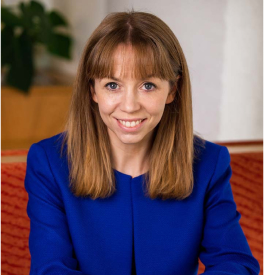 Niamh Bhalla Director and Assistant Dean of Diversity, Equity and InclusionRead full bio
Niamh Bhalla Director and Assistant Dean of Diversity, Equity and InclusionRead full bio -
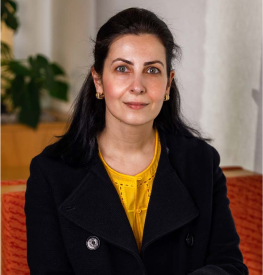 Diana Bozhilova Associate Dean of Global Impact and Sustainability and Associate Professor in Politics and International RelationsRead full bio
Diana Bozhilova Associate Dean of Global Impact and Sustainability and Associate Professor in Politics and International RelationsRead full bio -
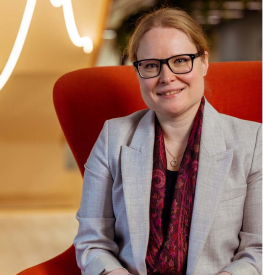 Marianna Koli Faculty Director of Social SciencesRead full bio
Marianna Koli Faculty Director of Social SciencesRead full bio -
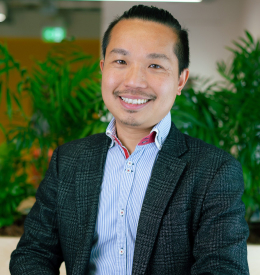 Yu-Chun Pan Faculty Director for Computing, Mathematics, Engineering & Natural Sciences (CoMENS), Director of Experiential Learning, Associate Professor in Digital TransformationRead full bio
Yu-Chun Pan Faculty Director for Computing, Mathematics, Engineering & Natural Sciences (CoMENS), Director of Experiential Learning, Associate Professor in Digital TransformationRead full bio -
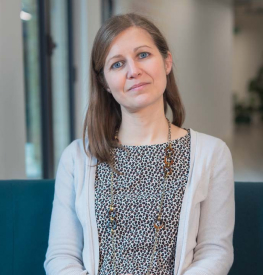 Sara Raimondi Faculty Director of Humanities, and Associate Professor in Politics and International RelationsRead full bio
Sara Raimondi Faculty Director of Humanities, and Associate Professor in Politics and International RelationsRead full bio -
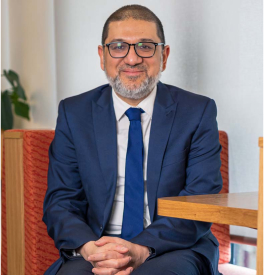 Kasim Randeree Associate Dean of Faculty AffairsRead full bio
Kasim Randeree Associate Dean of Faculty AffairsRead full bio -
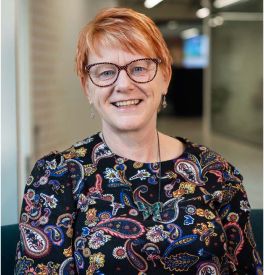 Alison Statham Associate Dean of Teaching and Learning (Students), Affiliate Associate Professor of Politics for the College of Social Sciences and Humanities, Associate Professor in Politics and PedagogyRead full bio
Alison Statham Associate Dean of Teaching and Learning (Students), Affiliate Associate Professor of Politics for the College of Social Sciences and Humanities, Associate Professor in Politics and PedagogyRead full bio
Humanities Faculties
Senior Humanities Faculty
-
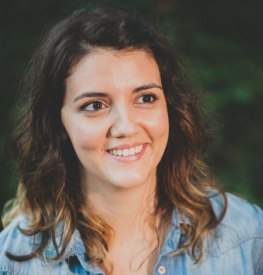 Laura Acosta-Ortega Head of Modern Languages; Assistant Professor in SpanishRead full bio
Laura Acosta-Ortega Head of Modern Languages; Assistant Professor in SpanishRead full bio -
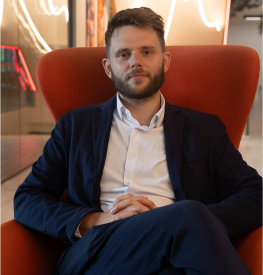 Tom Beevers Head of Philosophy and Assistant Director of the Doctoral SchoolRead full bio
Tom Beevers Head of Philosophy and Assistant Director of the Doctoral SchoolRead full bio -
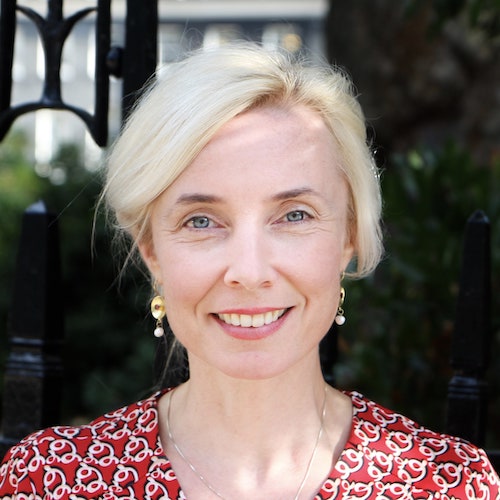 Catherine Brown Assistant Dean for Humanics, Associate Professor of EnglishRead full bio
Catherine Brown Assistant Dean for Humanics, Associate Professor of EnglishRead full bio -
 Kate Grandjouan Associate Professor in Art History and Associate Director for Belonging in the HumanitiesRead full bio
Kate Grandjouan Associate Professor in Art History and Associate Director for Belonging in the HumanitiesRead full bio -
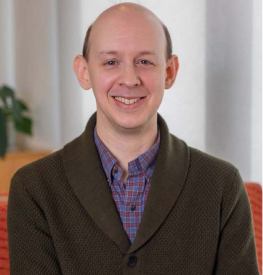 Peter Maber Head of English, Creative & Academic Writing and Associate Professor in EnglishRead full bio
Peter Maber Head of English, Creative & Academic Writing and Associate Professor in EnglishRead full bio -
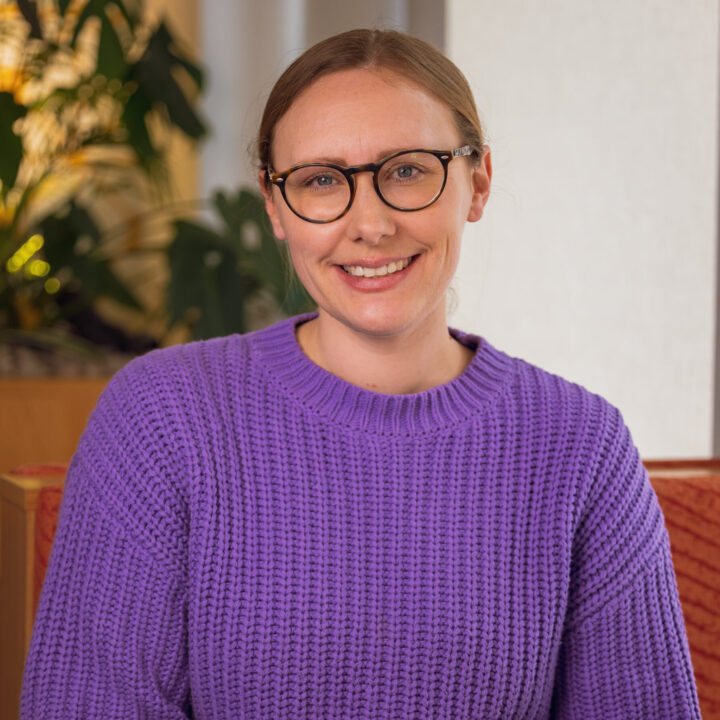 Rebecca Maccabe Assistant Professor in Professional Education and Associate Director of Experiential & Careers in Humanities and Social SciencesRead full bio
Rebecca Maccabe Assistant Professor in Professional Education and Associate Director of Experiential & Careers in Humanities and Social SciencesRead full bio -
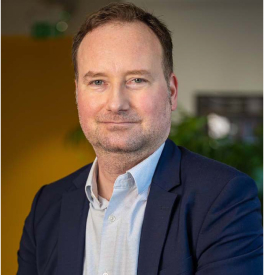 Edmund Neill Head of History and Art History; Associate Director of Research and Knowledge Exchange; Associate Professor in Modern HistoryRead full bio
Edmund Neill Head of History and Art History; Associate Director of Research and Knowledge Exchange; Associate Professor in Modern HistoryRead full bio -
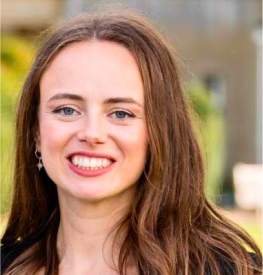 Rebecca Newby Associate Director of Global Experience; Assistant Professor in EnglishRead full bio
Rebecca Newby Associate Director of Global Experience; Assistant Professor in EnglishRead full bio -
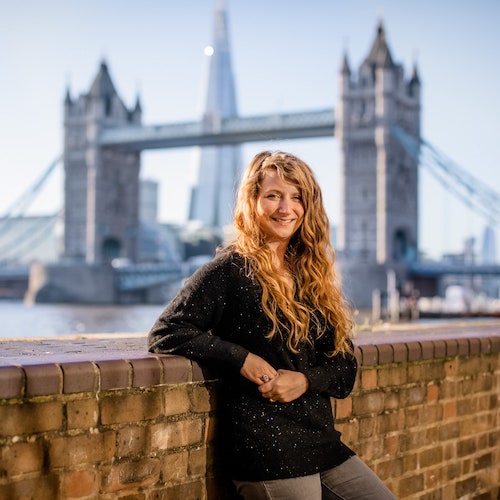 Estelle Paranque Associate Professor in Early Modern HistoryRead full bio
Estelle Paranque Associate Professor in Early Modern HistoryRead full bio -
 Sara Raimondi Faculty Director of Humanities, and Associate Professor in Politics and International RelationsRead full bio
Sara Raimondi Faculty Director of Humanities, and Associate Professor in Politics and International RelationsRead full bio -
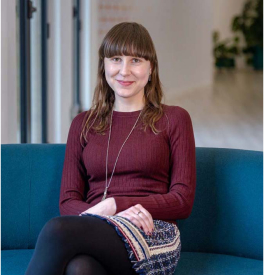 Jessica Terekhov Associate Director of Teaching & Learning (Humanities) & Assistant Professor in EnglishRead full bio
Jessica Terekhov Associate Director of Teaching & Learning (Humanities) & Assistant Professor in EnglishRead full bio -
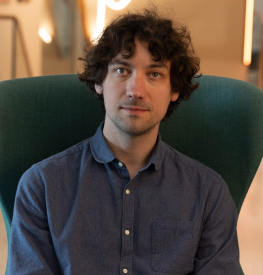 Tom Williams Assistant Professor in Philosophy and Associate Director for Enrolment Management in HumanitiesRead full bio
Tom Williams Assistant Professor in Philosophy and Associate Director for Enrolment Management in HumanitiesRead full bio
English
-
 Chiara Alfano Associate Dean of Teaching and LearningRead full bio
Chiara Alfano Associate Dean of Teaching and LearningRead full bio -
 Catherine Brown Assistant Dean for Humanics, Associate Professor of EnglishRead full bio
Catherine Brown Assistant Dean for Humanics, Associate Professor of EnglishRead full bio -
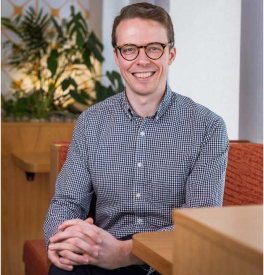 Tomas Elliott Assistant Professor in EnglishRead full bio
Tomas Elliott Assistant Professor in EnglishRead full bio -
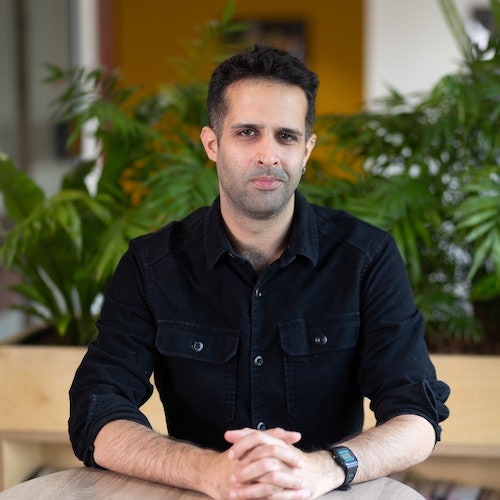 Peter Ely Assistant Professor in English LiteratureRead full bio
Peter Ely Assistant Professor in English LiteratureRead full bio -
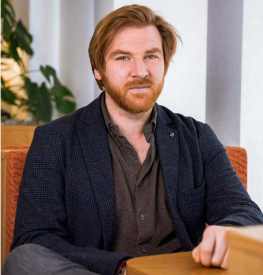 Rory Gleeson Assistant Professor in EnglishRead full bio
Rory Gleeson Assistant Professor in EnglishRead full bio -
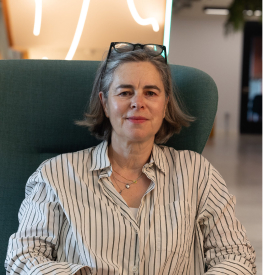 Charlotte Grant Associate Professor in EnglishRead full bio
Charlotte Grant Associate Professor in EnglishRead full bio -
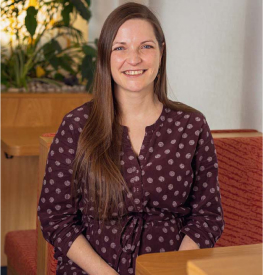 Claire Griffiths Assistant Professor in English & Creative WritingRead full bio
Claire Griffiths Assistant Professor in English & Creative WritingRead full bio -
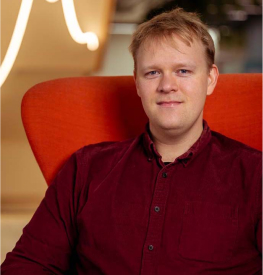 Sam Kemp Assistant Professor in Creative WritingRead full bio
Sam Kemp Assistant Professor in Creative WritingRead full bio -
 Flora Lisica LecturerRead full bio
Flora Lisica LecturerRead full bio -
 Peter Maber Head of English, Creative & Academic Writing and Associate Professor in EnglishRead full bio
Peter Maber Head of English, Creative & Academic Writing and Associate Professor in EnglishRead full bio -
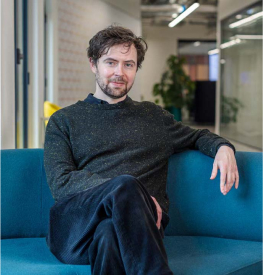 Jacob McGuinn Assistant Professor in EnglishRead full bio
Jacob McGuinn Assistant Professor in EnglishRead full bio -
 Rebecca Newby Associate Director of Global Experience; Assistant Professor in EnglishRead full bio
Rebecca Newby Associate Director of Global Experience; Assistant Professor in EnglishRead full bio -
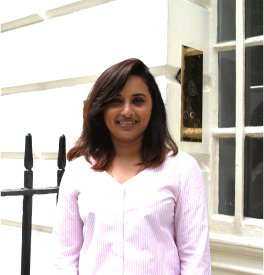 Riyukta Raghunath Director of Global Experience Programmes and Associate Professor in English and EducationRead full bio
Riyukta Raghunath Director of Global Experience Programmes and Associate Professor in English and EducationRead full bio -
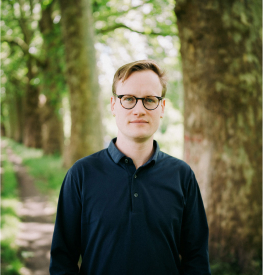 Orlando Reade Assistant Professor (Teaching and Research) in English (Writing & Literature)Read full bio
Orlando Reade Assistant Professor (Teaching and Research) in English (Writing & Literature)Read full bio -
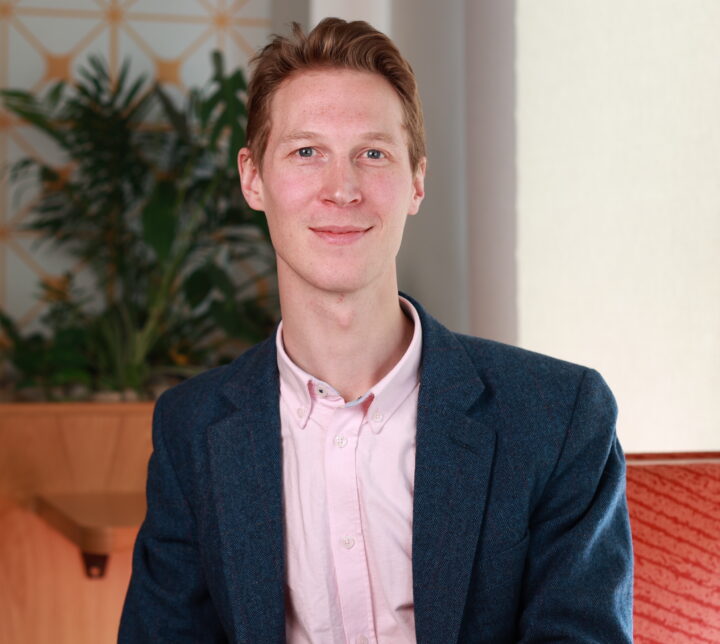 Alistair Robinson Academic Director, Centre for Apprenticeships and Associate Professor in EnglishRead full bio
Alistair Robinson Academic Director, Centre for Apprenticeships and Associate Professor in EnglishRead full bio -
 Daniel Swift Associate Professor in EnglishRead full bio
Daniel Swift Associate Professor in EnglishRead full bio -
 Jessica Terekhov Associate Director of Teaching & Learning (Humanities) & Assistant Professor in EnglishRead full bio
Jessica Terekhov Associate Director of Teaching & Learning (Humanities) & Assistant Professor in EnglishRead full bio -
 Deborah Walker Assistant Professor in Creative WritingRead full bio
Deborah Walker Assistant Professor in Creative WritingRead full bio -
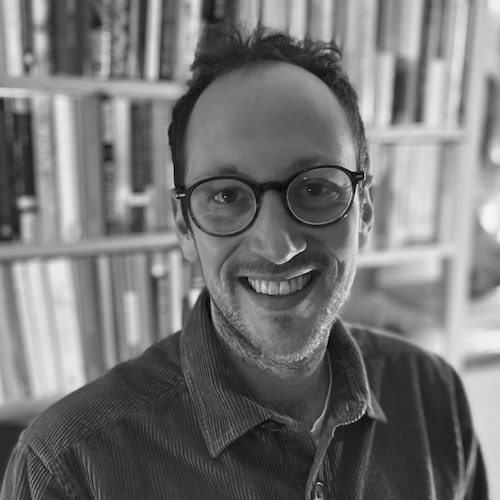 Sam Waterman Assistant Professor in EnglishRead full bio
Sam Waterman Assistant Professor in EnglishRead full bio -
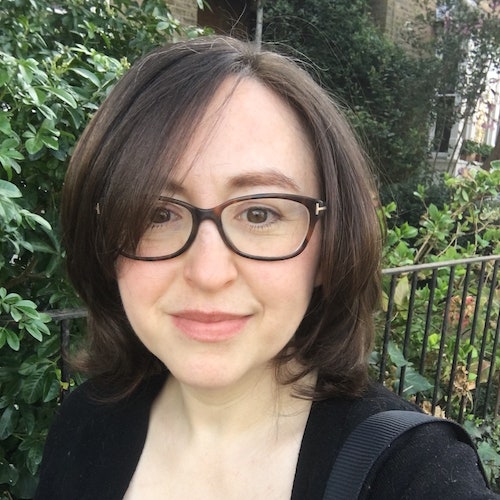 Naomi Wynter-Vincent Assistant Professor of Innovation and EnglishRead full bio
Naomi Wynter-Vincent Assistant Professor of Innovation and EnglishRead full bio -
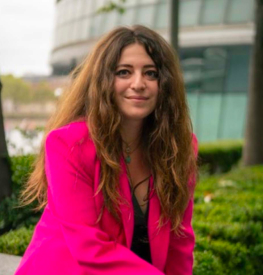 Chloe Yale Pinto Assistant Professor in EnglishRead full bio
Chloe Yale Pinto Assistant Professor in EnglishRead full bio
History including Art History
-
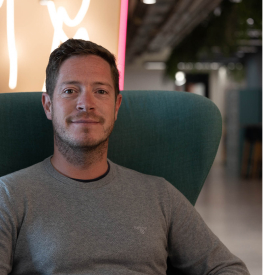 Oliver Ayers Professor of History and Higher EducationRead full bio
Oliver Ayers Professor of History and Higher EducationRead full bio -
 Niamh Bhalla Director and Assistant Dean of Diversity, Equity and InclusionRead full bio
Niamh Bhalla Director and Assistant Dean of Diversity, Equity and InclusionRead full bio -
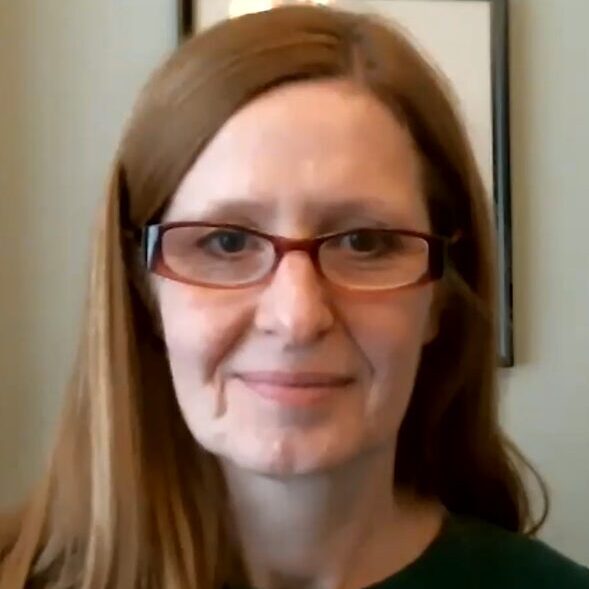 Susan Frances Jones Assistant Professor in Art HistoryRead full bio
Susan Frances Jones Assistant Professor in Art HistoryRead full bio -
 Kate Grandjouan Associate Professor in Art History and Associate Director for Belonging in the HumanitiesRead full bio
Kate Grandjouan Associate Professor in Art History and Associate Director for Belonging in the HumanitiesRead full bio -
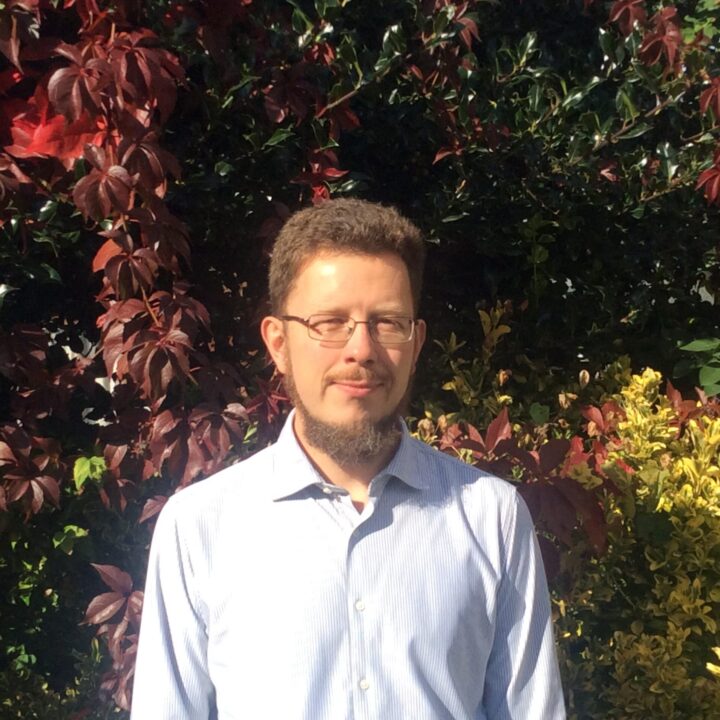 Lars Kjaer Associate Professor in Medieval HistoryRead full bio
Lars Kjaer Associate Professor in Medieval HistoryRead full bio -
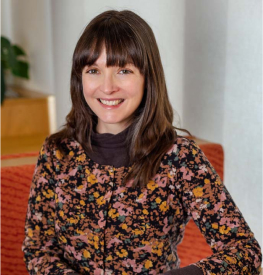 Chloë R. McKenzie Assistant Professor in Medieval HistoryRead full bio
Chloë R. McKenzie Assistant Professor in Medieval HistoryRead full bio -
 Edmund Neill Head of History and Art History; Associate Director of Research and Knowledge Exchange; Associate Professor in Modern HistoryRead full bio
Edmund Neill Head of History and Art History; Associate Director of Research and Knowledge Exchange; Associate Professor in Modern HistoryRead full bio -
 Estelle Paranque Associate Professor in Early Modern HistoryRead full bio
Estelle Paranque Associate Professor in Early Modern HistoryRead full bio -
 Michael Peplar Special Advisor to the Dean, Director of the Doctoral School, and Associate Professor in HistoryRead full bio
Michael Peplar Special Advisor to the Dean, Director of the Doctoral School, and Associate Professor in HistoryRead full bio -
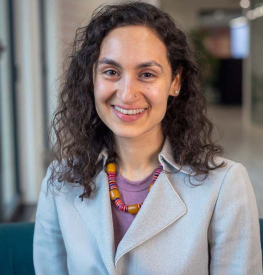 Luna Sabastian Assistant Professor in HistoryRead full bio
Luna Sabastian Assistant Professor in HistoryRead full bio -
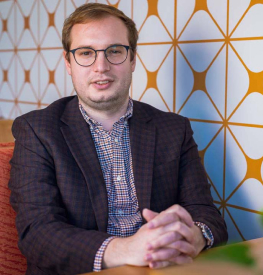 Stephen Spencer Assistant Professor in Medieval HistoryRead full bio
Stephen Spencer Assistant Professor in Medieval HistoryRead full bio
Law and Criminology
-
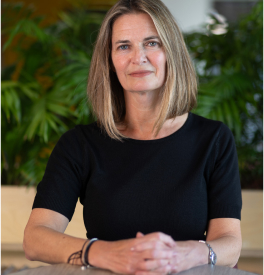 Lisa Collingwood Associate Professor in LawRead full bio
Lisa Collingwood Associate Professor in LawRead full bio -
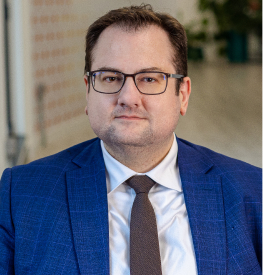 Anton Dinev Assistant Professor in LawRead full bio
Anton Dinev Assistant Professor in LawRead full bio -
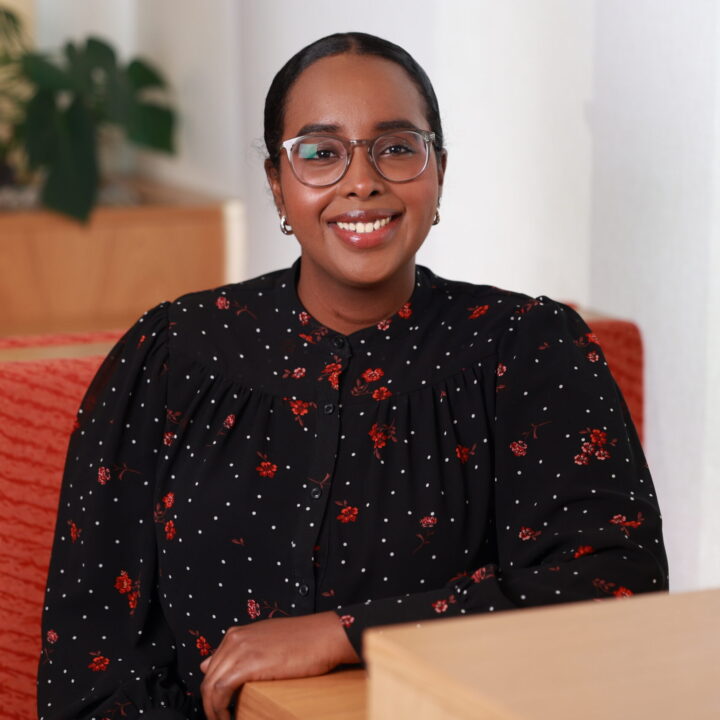 Head of Law & Criminology at Northeastern University London and an Assistant Professor in Commercial LawRead full bio
Head of Law & Criminology at Northeastern University London and an Assistant Professor in Commercial LawRead full bio -
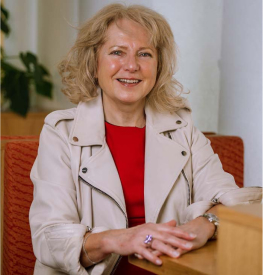 Ursula Smartt Associate Professor in Law LLB & Subject Leader for Public LawRead full bio
Ursula Smartt Associate Professor in Law LLB & Subject Leader for Public LawRead full bio -
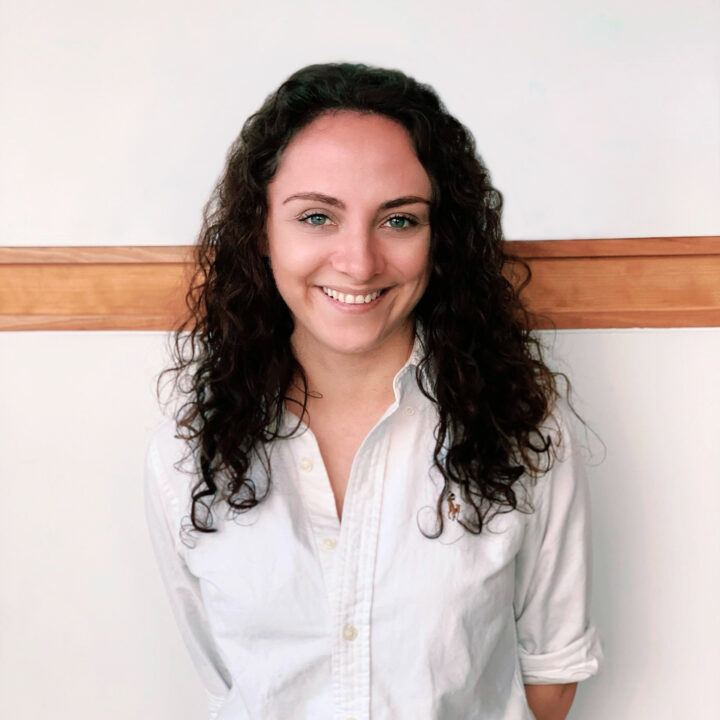 Scarlett Swain Assistant ProfessorRead full bio
Scarlett Swain Assistant ProfessorRead full bio -
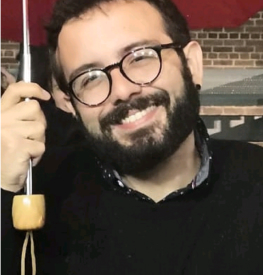 Luiz Valle Junior Assistant Professor in Law and CriminologyRead full bio
Luiz Valle Junior Assistant Professor in Law and CriminologyRead full bio
Modern Languages
Philosophy
-
 Brian Ball Professor of PhilosophyRead full bio
Brian Ball Professor of PhilosophyRead full bio -
 Tom Beevers Head of Philosophy and Assistant Director of the Doctoral SchoolRead full bio
Tom Beevers Head of Philosophy and Assistant Director of the Doctoral SchoolRead full bio -
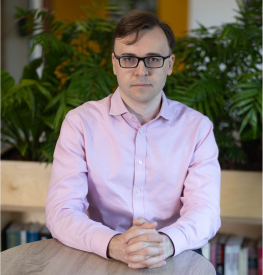 David Freeborn Assistant Professor in PhilosophyRead full bio
David Freeborn Assistant Professor in PhilosophyRead full bio -
 Naomi Goulder BA, MA, PHD Deputy Dean; Associate Dean for Innovation and Enterprise; and Associate Professor in PhilosophyRead full bio
Naomi Goulder BA, MA, PHD Deputy Dean; Associate Dean for Innovation and Enterprise; and Associate Professor in PhilosophyRead full bio -
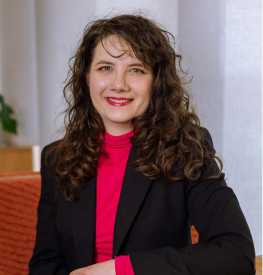 Alice C Helliwell Assistant Professor in PhilosophyRead full bio
Alice C Helliwell Assistant Professor in PhilosophyRead full bio -
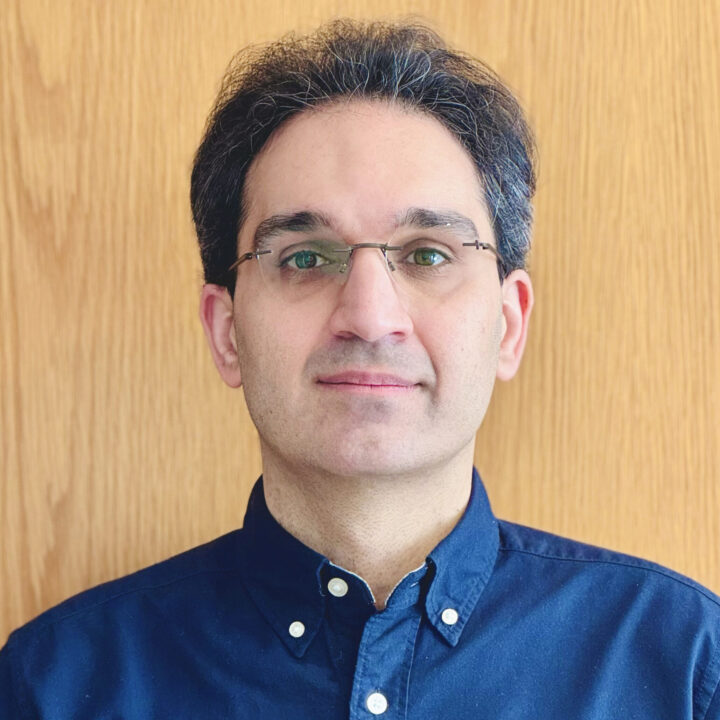 Hossein Dabbagh Assistant Professor of PhilosophyRead full bio
Hossein Dabbagh Assistant Professor of PhilosophyRead full bio -
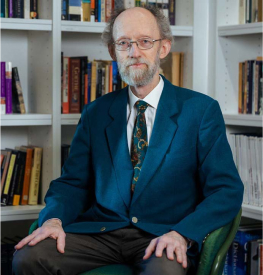 David Mitchell Associate Professor in PhilosophyRead full bio
David Mitchell Associate Professor in PhilosophyRead full bio -
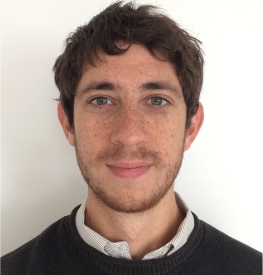 Andrés Saenz de Sicilia Assistant Professor in PhilosophyRead full bio
Andrés Saenz de Sicilia Assistant Professor in PhilosophyRead full bio -
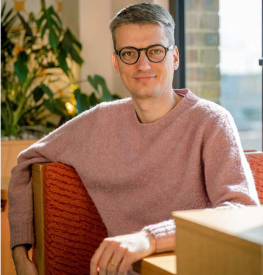 Christoph Schuringa Associate Professor in PhilosophyRead full bio
Christoph Schuringa Associate Professor in PhilosophyRead full bio -
 Ioannis Votsis Professor in PhilosophyRead full bio
Ioannis Votsis Professor in PhilosophyRead full bio -
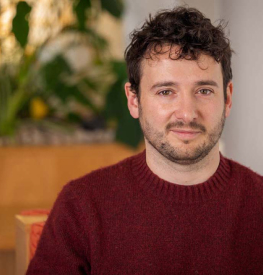 Peter West Assistant Professor in PhilosophyRead full bio
Peter West Assistant Professor in PhilosophyRead full bio -
 Tom Williams Assistant Professor in Philosophy and Associate Director for Enrolment Management in HumanitiesRead full bio
Tom Williams Assistant Professor in Philosophy and Associate Director for Enrolment Management in HumanitiesRead full bio
Computing, Mathematics, Engineering, and Natural Sciences (CoMENS) Faculties
Senior CoMENS Faculty
-
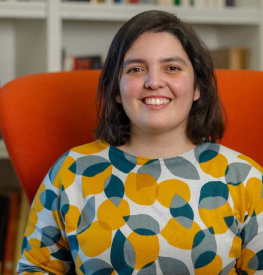 Inês Castro Associate Director of Global Experience (CoMEMS); Assistant Professor in BiologyRead full bio
Inês Castro Associate Director of Global Experience (CoMEMS); Assistant Professor in BiologyRead full bio -
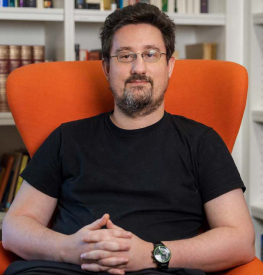 Tobias Hartung Associate Director of Teaching & Learning (CoMENS); Assistant Professor in Computer ScienceRead full bio
Tobias Hartung Associate Director of Teaching & Learning (CoMENS); Assistant Professor in Computer ScienceRead full bio -
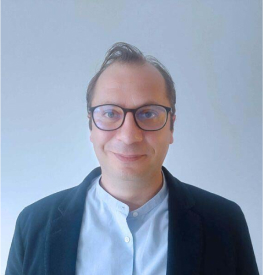 Alexandros Koliousis Faculty Director of Computing, Mathematics, Engineering, and Natural Sciences; and Professor in Computer ScienceRead full bio
Alexandros Koliousis Faculty Director of Computing, Mathematics, Engineering, and Natural Sciences; and Professor in Computer ScienceRead full bio -
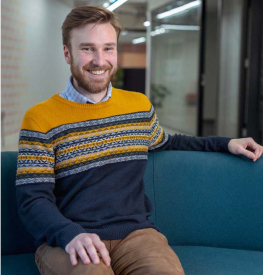 Sam Mutter Assistant Professor of Mathematics; Associate Director for Belonging (CoMENS)Read full bio
Sam Mutter Assistant Professor of Mathematics; Associate Director for Belonging (CoMENS)Read full bio -
 Yu-Chun Pan Faculty Director for Computing, Mathematics, Engineering & Natural Sciences (CoMENS), Director of Experiential Learning, Associate Professor in Digital TransformationRead full bio
Yu-Chun Pan Faculty Director for Computing, Mathematics, Engineering & Natural Sciences (CoMENS), Director of Experiential Learning, Associate Professor in Digital TransformationRead full bio
Bioscience and Chemistry
-
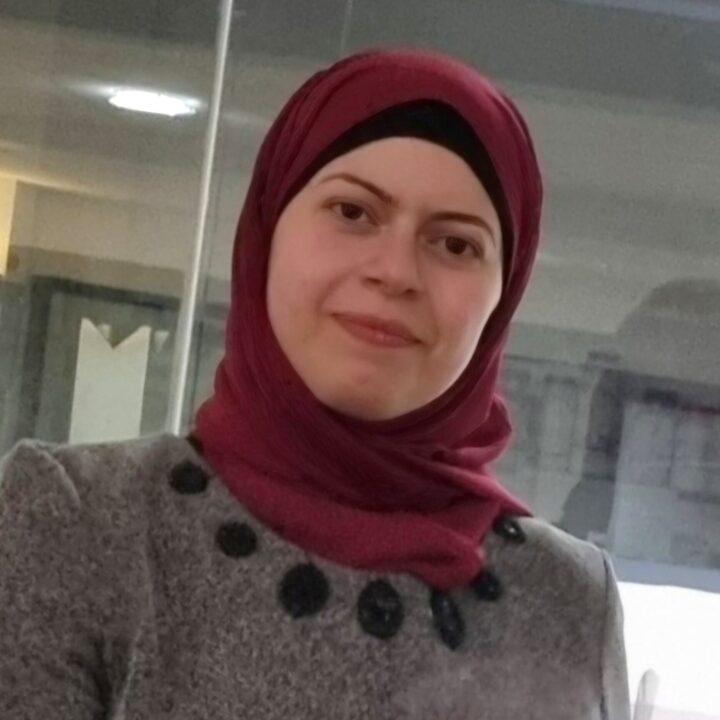 Sara Abdelsayed Lecturer in BiologyRead full bio
Sara Abdelsayed Lecturer in BiologyRead full bio -
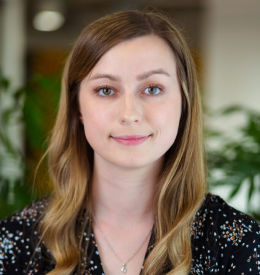 Lauren Adams Associate Director for Belonging (Apprenticeships); Assistant Professor in Biological Sciences and Academic PracticeRead full bio
Lauren Adams Associate Director for Belonging (Apprenticeships); Assistant Professor in Biological Sciences and Academic PracticeRead full bio -
 Carolyn Barker Associate Dean of Research and Knowledge ExchangeRead full bio
Carolyn Barker Associate Dean of Research and Knowledge ExchangeRead full bio -
 Inês Castro Associate Director of Global Experience (CoMEMS); Assistant Professor in BiologyRead full bio
Inês Castro Associate Director of Global Experience (CoMEMS); Assistant Professor in BiologyRead full bio -
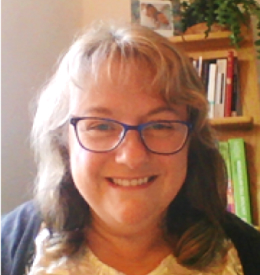 Helen Dawe Associate ProfessorRead full bio
Helen Dawe Associate ProfessorRead full bio -
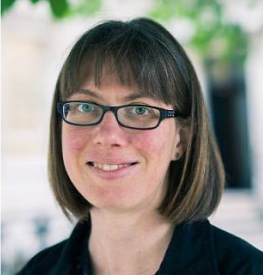 Deborah Gater Assistant Professor in ChemistryRead full bio
Deborah Gater Assistant Professor in ChemistryRead full bio -
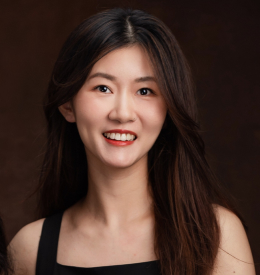 Xiaomeng Li Assistant Professor in Applied BioscienceRead full bio
Xiaomeng Li Assistant Professor in Applied BioscienceRead full bio -
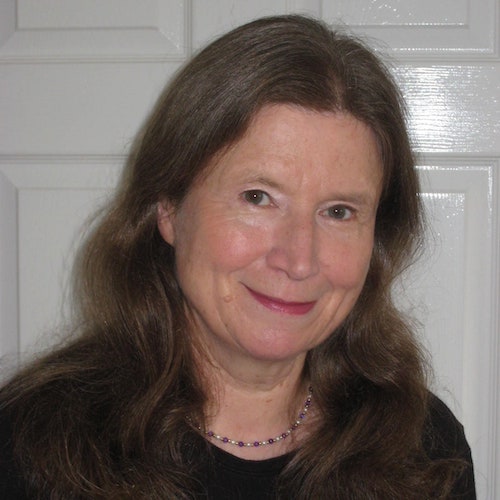 Susan Snoxall Assistant ProfessorRead full bio
Susan Snoxall Assistant ProfessorRead full bio -
 Uri Weill Assistant Professor in BiologyRead full bio
Uri Weill Assistant Professor in BiologyRead full bio -
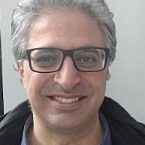 Constantinos Zeinalipour-Yazdi Assistant Professor in ChemistryRead full bio
Constantinos Zeinalipour-Yazdi Assistant Professor in ChemistryRead full bio
Computing and Information Systems
-
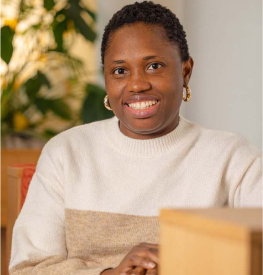 Ibukun Afolabi Assistant Professor in Computer ScienceRead full bio
Ibukun Afolabi Assistant Professor in Computer ScienceRead full bio -
 Kehinde Daniel Aruleba Assistant ProfessorRead full bio
Kehinde Daniel Aruleba Assistant ProfessorRead full bio -
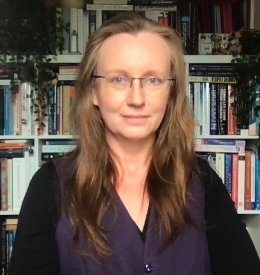 Mikhaila Burgess Associate ProfessorRead full bio
Mikhaila Burgess Associate ProfessorRead full bio -
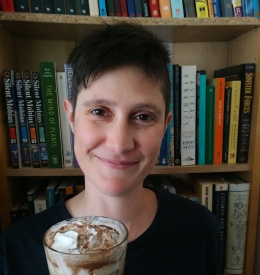 Dana Polatin Lecturer in Computing and Information SystemsRead full bio
Dana Polatin Lecturer in Computing and Information SystemsRead full bio -
 Tobias Hartung Associate Director of Teaching & Learning (CoMENS); Assistant Professor in Computer ScienceRead full bio
Tobias Hartung Associate Director of Teaching & Learning (CoMENS); Assistant Professor in Computer ScienceRead full bio -
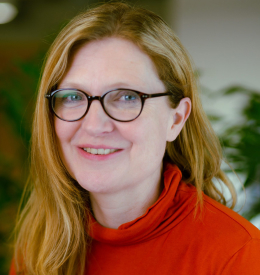 Sian Joel-Edgar Associate ProfessorRead full bio
Sian Joel-Edgar Associate ProfessorRead full bio -
 Alexandros Koliousis Faculty Director of Computing, Mathematics, Engineering, and Natural Sciences; and Professor in Computer ScienceRead full bio
Alexandros Koliousis Faculty Director of Computing, Mathematics, Engineering, and Natural Sciences; and Professor in Computer ScienceRead full bio -
 Jiri Motejlek Assistant ProfessorRead full bio
Jiri Motejlek Assistant ProfessorRead full bio -
 Fatemeh Parsa Assistant ProfessorRead full bio
Fatemeh Parsa Assistant ProfessorRead full bio -
 Juan Carlos Saenz Assistant ProfessorRead full bio
Juan Carlos Saenz Assistant ProfessorRead full bio
Data and AI
-
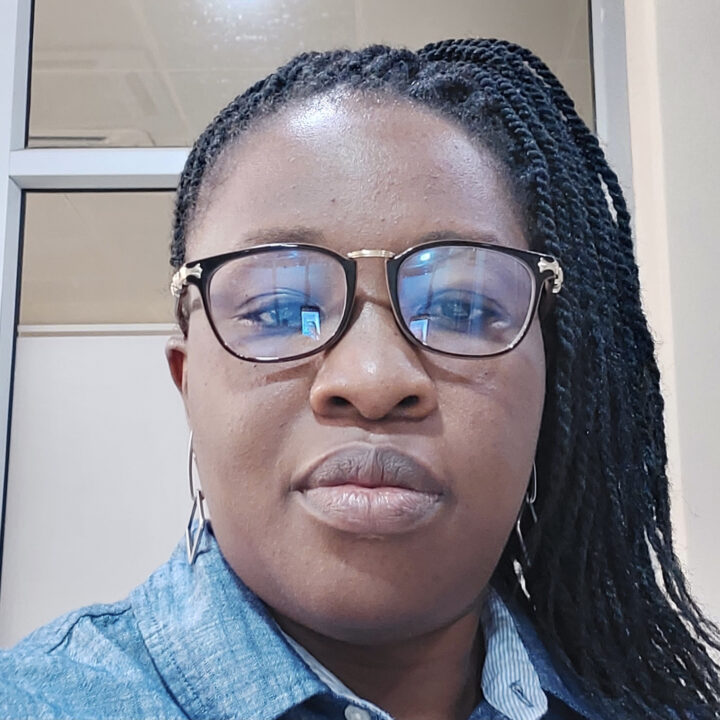 Joke Badejo Assistant Professor in AI and Data ScienceRead full bio
Joke Badejo Assistant Professor in AI and Data ScienceRead full bio -
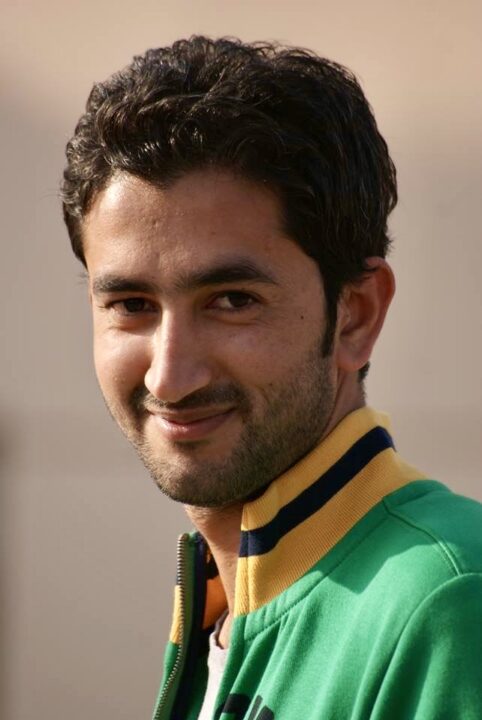 Anees Baqir Assistant Professor of Data ScienceRead full bio
Anees Baqir Assistant Professor of Data ScienceRead full bio -
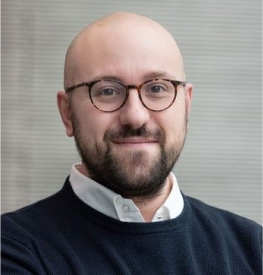 Giuseppe Brandi Assistant Professor in Data ScienceRead full bio
Giuseppe Brandi Assistant Professor in Data ScienceRead full bio -
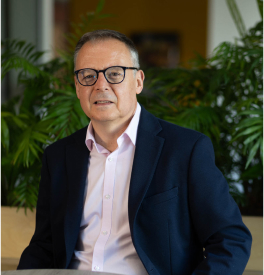 Enrique Fernandez-Pino Associate Professor in Leadership in Technology and AIRead full bio
Enrique Fernandez-Pino Associate Professor in Leadership in Technology and AIRead full bio -
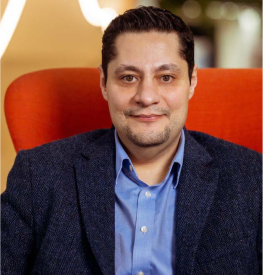 Malik Haddad Assistant Professor in Data and Computer ScienceRead full bio
Malik Haddad Assistant Professor in Data and Computer ScienceRead full bio -
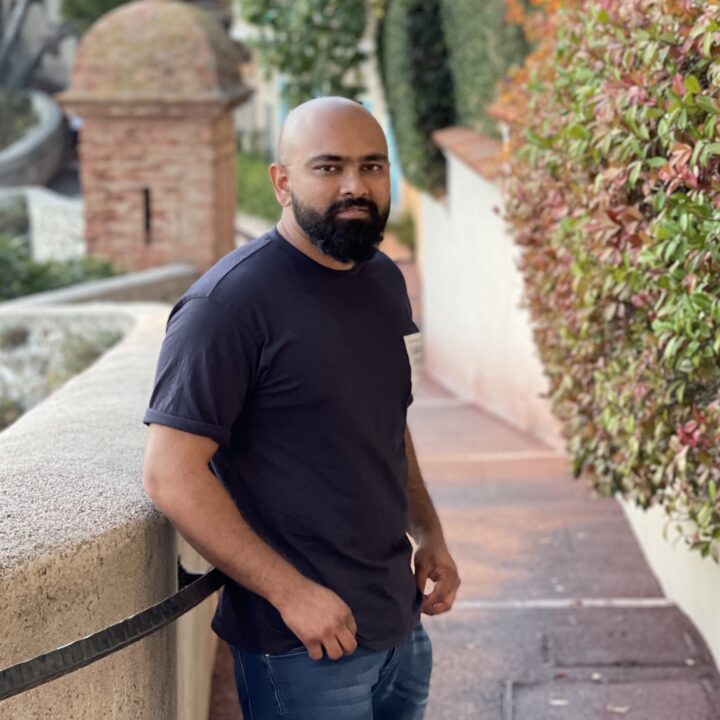 Waleed Iqbal Lecturer in Data ScienceRead full bio
Waleed Iqbal Lecturer in Data ScienceRead full bio -
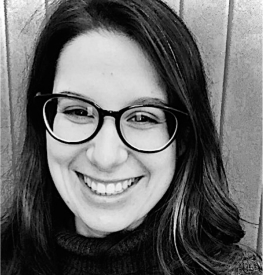 Mariana Macedo Assistant Professor in Data ScienceRead full bio
Mariana Macedo Assistant Professor in Data ScienceRead full bio -
 Mark Martin Assistant Professor in Computer Science and Education PracticeRead full bio
Mark Martin Assistant Professor in Computer Science and Education PracticeRead full bio -
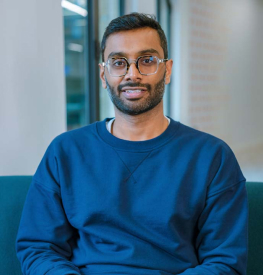 Amil Mohanan Assistant ProfessorRead full bio
Amil Mohanan Assistant ProfessorRead full bio -
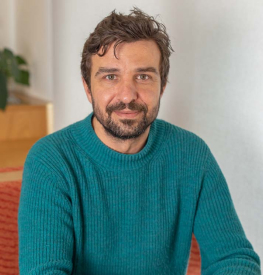 Dimitris Mylonas Associate Professor in Data Science; Head of Data Science and Artificial IntelligenceRead full bio
Dimitris Mylonas Associate Professor in Data Science; Head of Data Science and Artificial IntelligenceRead full bio -
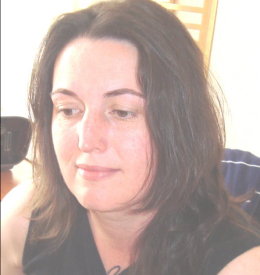 Katia Punter Assistant ProfessorRead full bio
Katia Punter Assistant ProfessorRead full bio
Mathematics
-
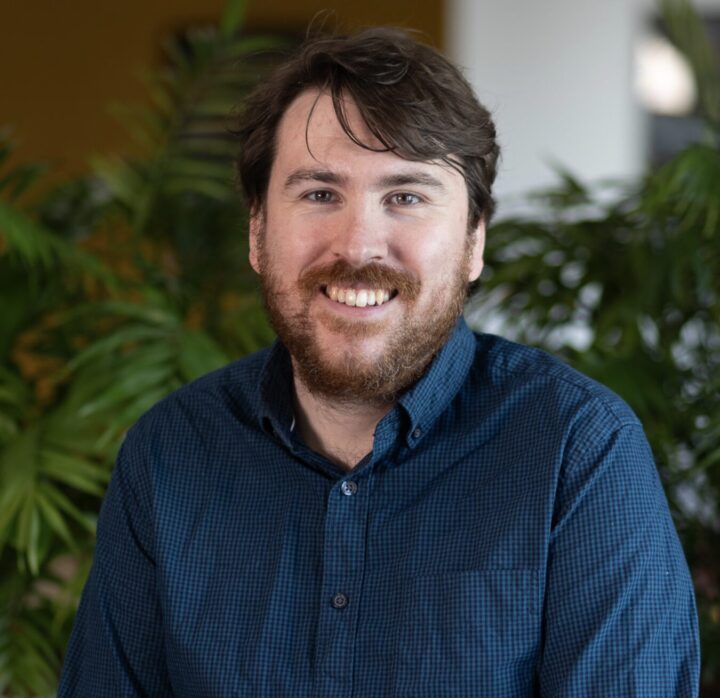 Tim Davis Lecturer in MathematicsRead full bio
Tim Davis Lecturer in MathematicsRead full bio -
 Matthew Haynes Lecturer of Mathematics, & Associate Director of Experiential Learning and Careers (CoMENS)Read full bio
Matthew Haynes Lecturer of Mathematics, & Associate Director of Experiential Learning and Careers (CoMENS)Read full bio -
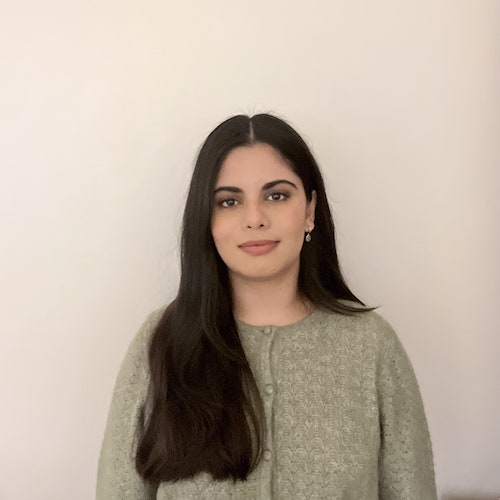 Sanjida Islam LecturerRead full bio
Sanjida Islam LecturerRead full bio -
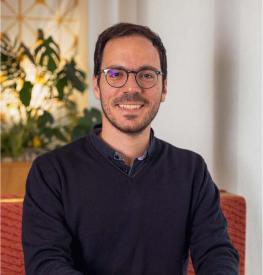 Dimitrios Lekkas Assistant Professor in MathematicsRead full bio
Dimitrios Lekkas Assistant Professor in MathematicsRead full bio -
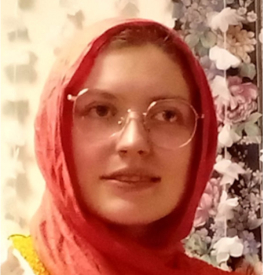 Asha Lewis-Oldale Lecturer in MathematicsRead full bio
Asha Lewis-Oldale Lecturer in MathematicsRead full bio -
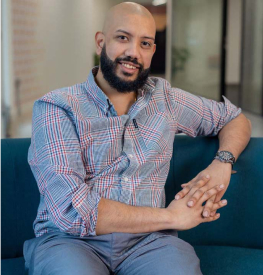 Matthew Meangru Head of Mathematics and Assistant Professor in MathematicsRead full bio
Matthew Meangru Head of Mathematics and Assistant Professor in MathematicsRead full bio -
 Sam Mutter Assistant Professor of Mathematics; Associate Director for Belonging (CoMENS)Read full bio
Sam Mutter Assistant Professor of Mathematics; Associate Director for Belonging (CoMENS)Read full bio -
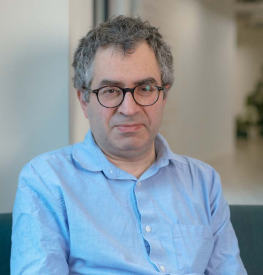 Peter Sozou Assistant ProfessorRead full bio
Peter Sozou Assistant ProfessorRead full bio -
 George Zouros Assistant Professor in EconomicsRead full bio
George Zouros Assistant Professor in EconomicsRead full bio
Network Science Faculties
-
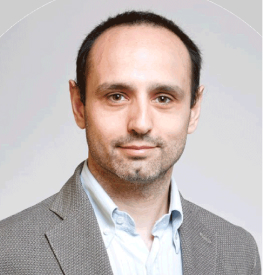 Ricardo Di Clemente Associate Professor of Network ScienceRead full bio
Ricardo Di Clemente Associate Professor of Network ScienceRead full bio -
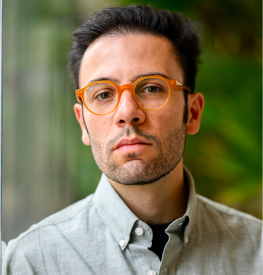 Iacopo Iacopini Associate Professor of Network Science InstituteRead full bio
Iacopo Iacopini Associate Professor of Network Science InstituteRead full bio -
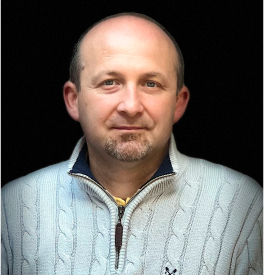 István Kiss Professor of Network ScienceRead full bio
István Kiss Professor of Network ScienceRead full bio -
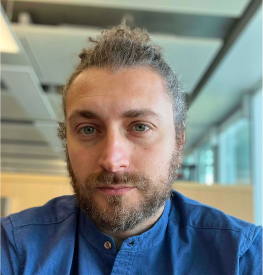 Giovanni Petri Professor of Network ScienceRead full bio
Giovanni Petri Professor of Network ScienceRead full bio -
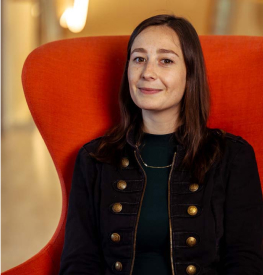 Zsófia Zádor Assistant Professor in International BusinessRead full bio
Zsófia Zádor Assistant Professor in International BusinessRead full bio -
 Andreia Sofia Teixeira Associate Professor at the Network Science InstituteRead full bio
Andreia Sofia Teixeira Associate Professor at the Network Science InstituteRead full bio

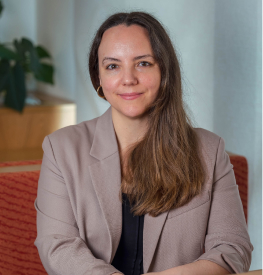
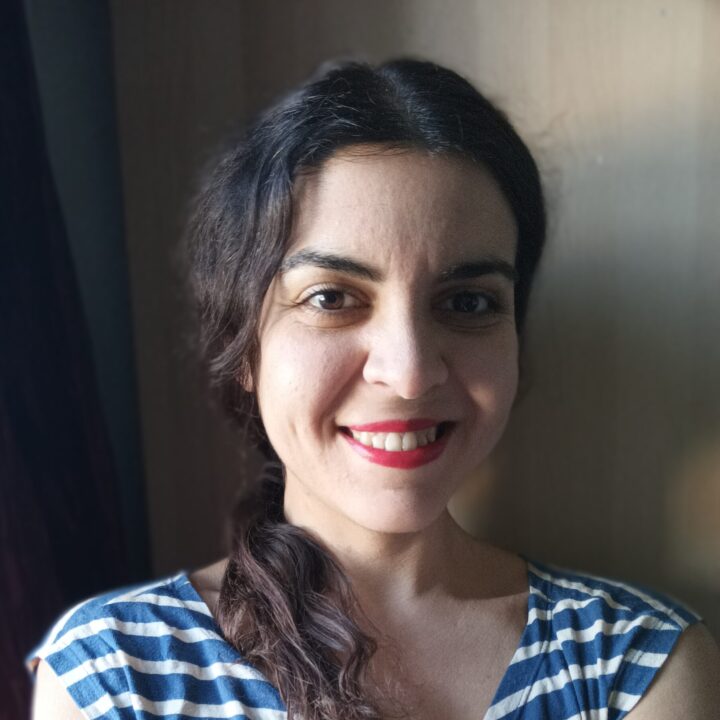
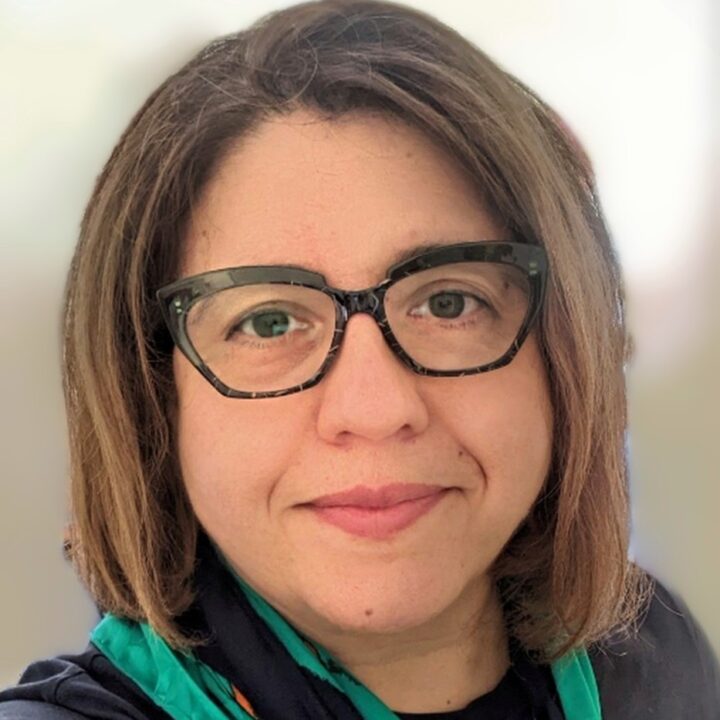
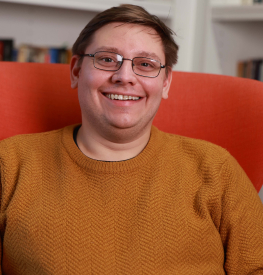


Social Sciences Faculties
Senior Social Sciences Faculty
Business and Project Management
Economics
Politics, International Relations, Sociology, and Anthropology
Psychology
Design and Communication Studies